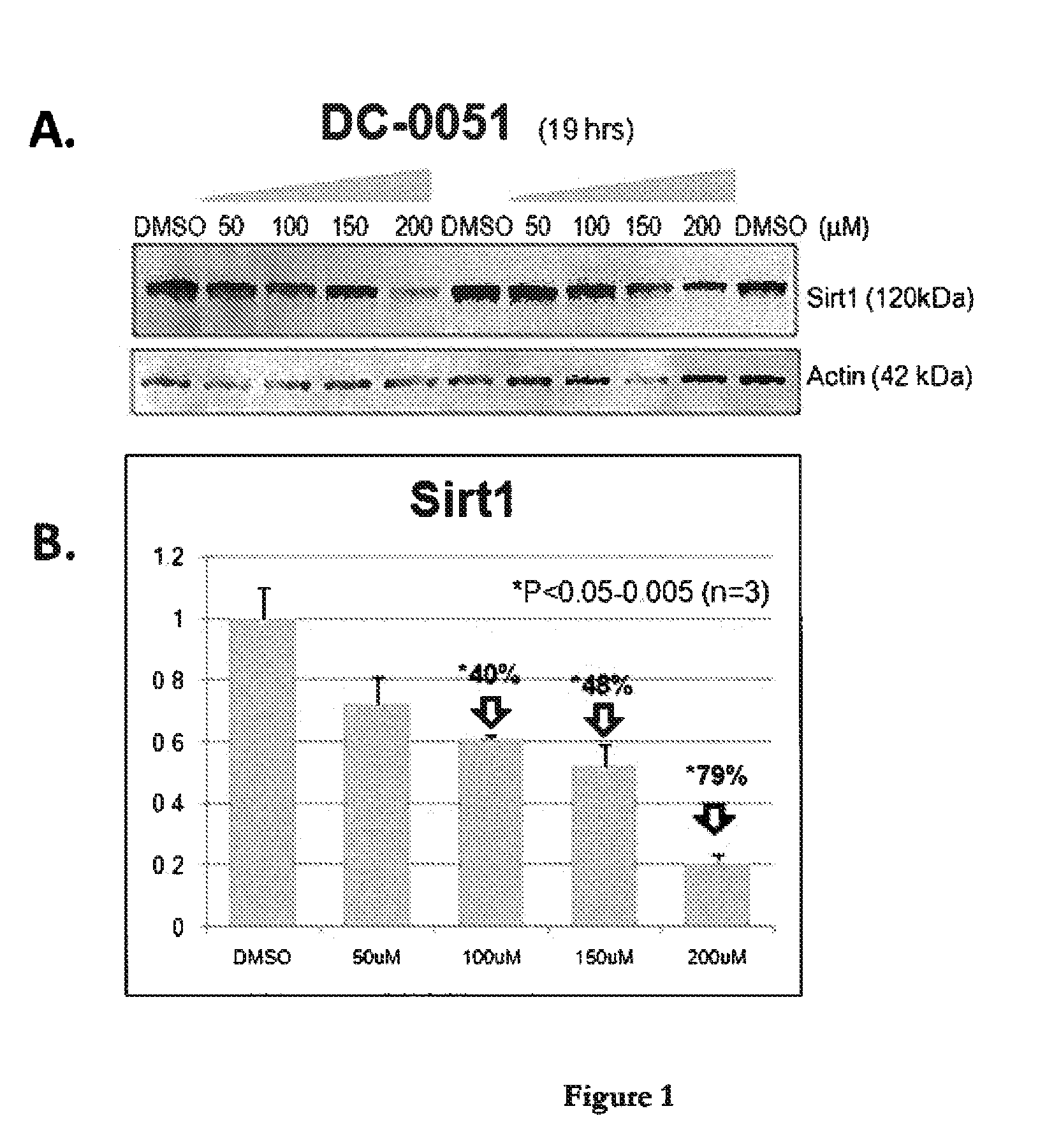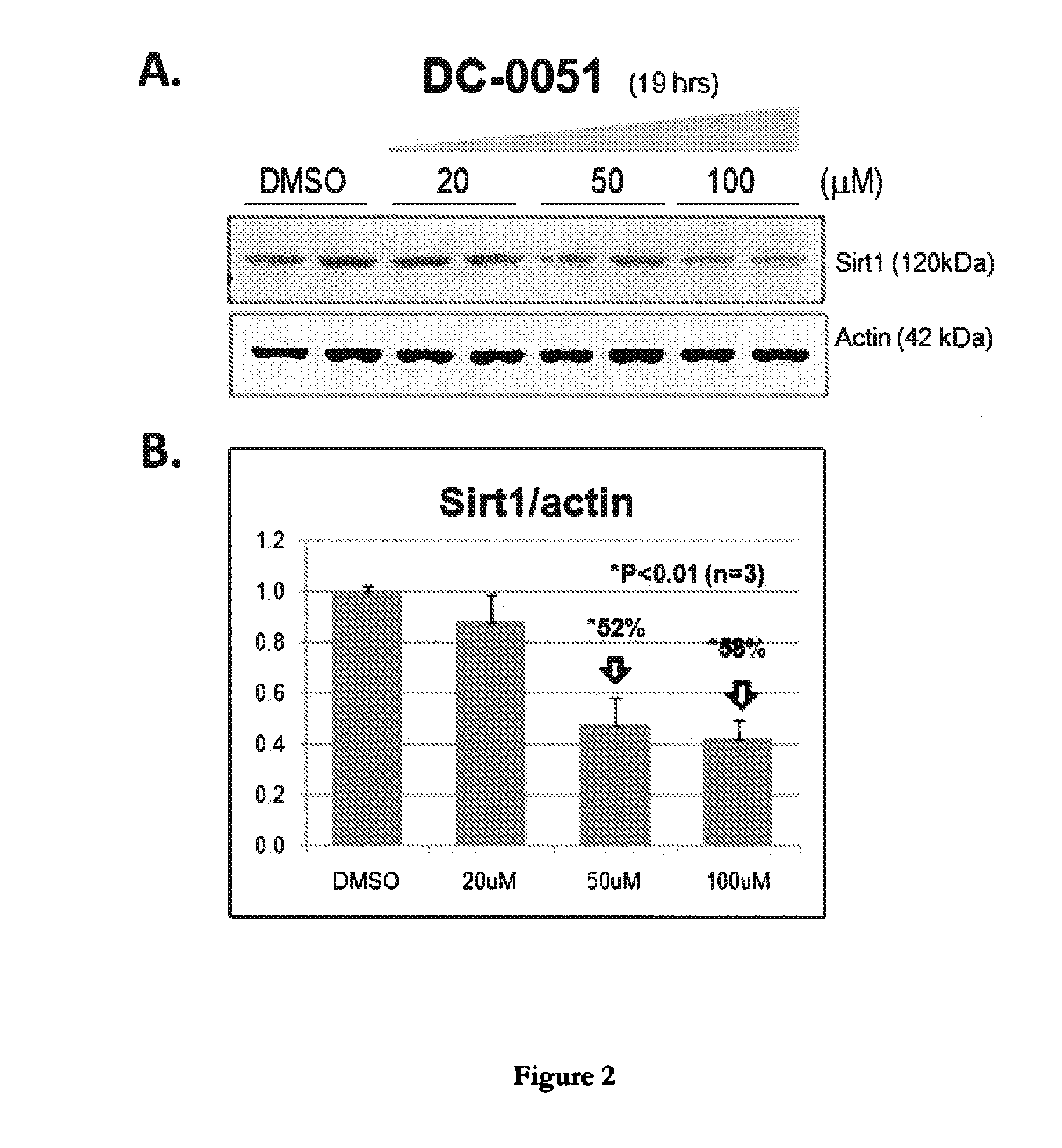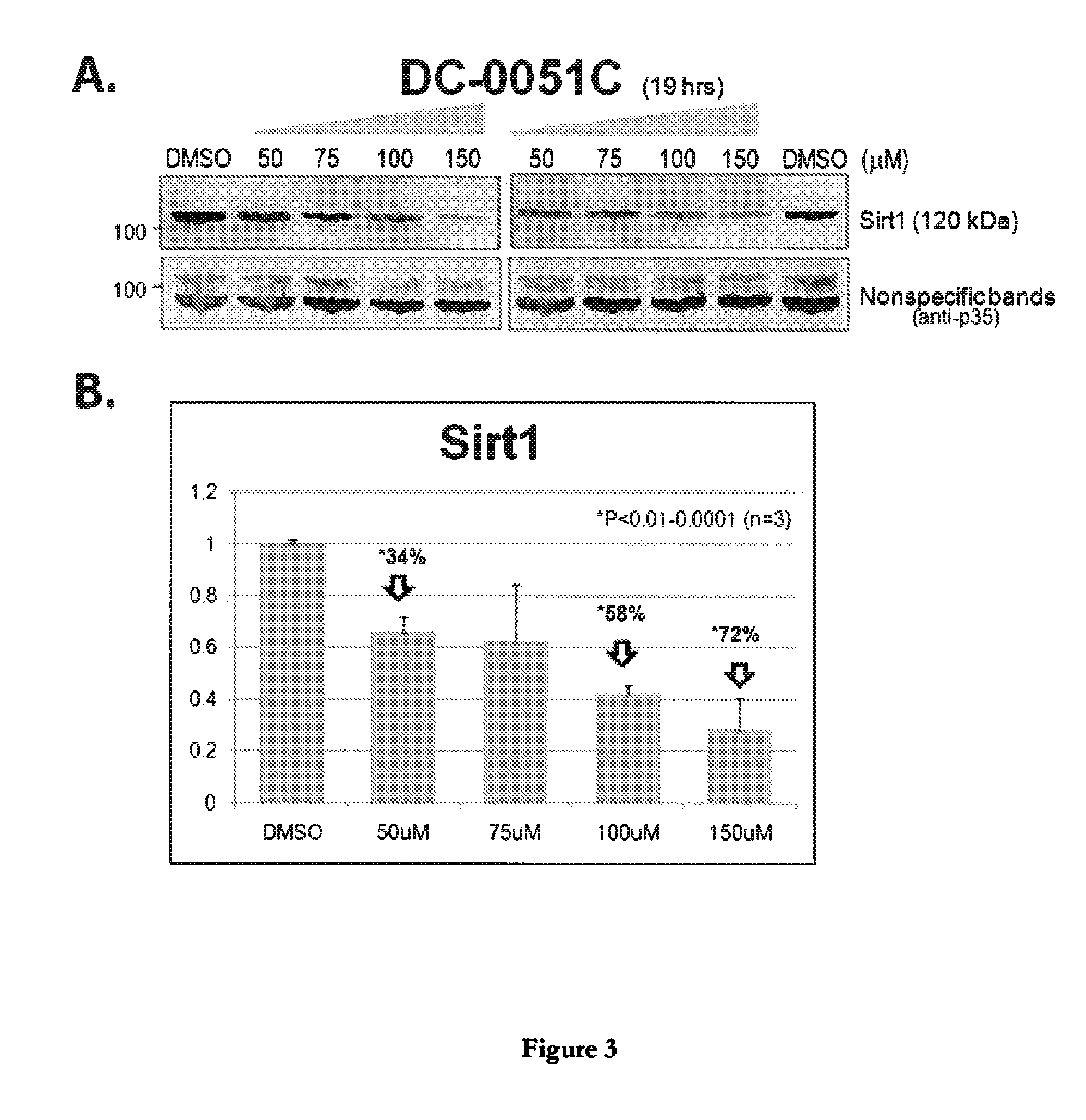Sirtuin 1 and the Treatment of Neurodegenerative Diseases
a neurodegenerative disease and sirtuin technology, applied in the field of sirtuin 1 and the treatment of neurodegenerative diseases, can solve the problems of inability to report sirt1 activity and promote longevity in mammals fed a normal diet, and the effects and regulation of sirtuins under physiological and pathological conditions appear to be extremely complex
- Summary
- Abstract
- Description
- Claims
- Application Information
AI Technical Summary
Problems solved by technology
Method used
Image
Examples
example 1
[0053]Dose-Dependent Reduction of Sirt1 in Cell Cultures Treated with Compounds DC-0051 and DC-0051C as Assessed by Western Analysis
1) cDNA Constructs, Cell Cultures and Stable Transfected Cell Lines
[0054]Mammalian expression constructs, pCA-APP695 and pcDNA3.1-APP695-myc, were obtained from previous studies described by Fukuchi et al. (1992) and Yang et al. (2006), respectively. pCA-APP695 contains the cDNA sequence encoding for the human full-length APP695, and is driven by a chicken actin promoter. pcDNA3.1-APP695-myc was generated by subcloning of an APP695 cDNA fragment from pCA-APP695 into the BamHI and EcoRI sites of the pcDNA3.1-myc / His vector (Invitrogen), which is driven by a cytomegalovirus immediate-early promoter.
[0055]Two cell lines stably transfected with pCA-APP695 and pcDNA3.1-APP695-myc were generated to assess APP processing in cell cultures. Human Embryonic Kidney (HEK) 293 cells (ATCC #CRL-1573), and human brain neuroblastoma cells, SK—N—SH (ATCC #HTB-11), were ...
PUM
 Login to View More
Login to View More Abstract
Description
Claims
Application Information
 Login to View More
Login to View More - R&D
- Intellectual Property
- Life Sciences
- Materials
- Tech Scout
- Unparalleled Data Quality
- Higher Quality Content
- 60% Fewer Hallucinations
Browse by: Latest US Patents, China's latest patents, Technical Efficacy Thesaurus, Application Domain, Technology Topic, Popular Technical Reports.
© 2025 PatSnap. All rights reserved.Legal|Privacy policy|Modern Slavery Act Transparency Statement|Sitemap|About US| Contact US: help@patsnap.com



